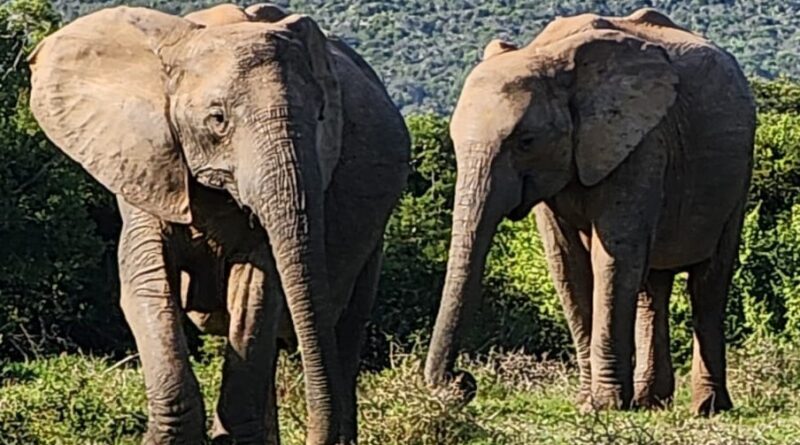South Africa Commemorates World Elephant Day
Johannesburg – South Africa has united with the global community to observe World Elephant Day.
Today, Tuesday 12 August 2025, is World Elephant Day, a day focused on raising awareness about the critical need to safeguard and manage the world’s elephant populations.
This year’s observance, themed “Matriarchs and Memories,” coincides with the Elephant Indaba, organized by the Department of Forestry, Fisheries and the Environment (DFFE) in the stunning landscape of KwaZulu-Natal, known for housing the second largest elephant population in the nation.
South Africa is home to approximately 44,000 African savanna elephants, with the population steadily increasing.
This marks a significant conservation achievement, especially when contrasted with the decline of elephant numbers seen in other nations.
Over the past four decades, elephant ranges in South Africa have also expanded.
Most elephants in the country reside in government-protected areas such as Kruger National Park, Mapungubwe National Park, and Tembe Elephant Park.
These parks are part of broader Transfrontier Conservation Areas (TFCAs), where elephants can move freely across national borders, sharing their habitat with neighboring countries.
In addition to these large parks, 89 smaller fenced reserves contribute to the support of elephant populations.
Approximately 6,000 elephants are privately owned or managed by communities.
In recent years, an increasing number of communities have begun to take charge of elephant management.
“South Africa’s achievement in revitalizing elephant populations not only inspires hope for the species but also presents complex challenges within the framework of the country’s developmental goals,” remarked Deputy Minister Narend Singh.
“As elephant numbers and territories grow, interactions between humans and elephants are on the rise, especially in rural communities adjacent to protected areas.
“Human-elephant conflicts can lead to crop damage, infrastructure destruction, and, in some instances, injury or loss of human life.
“For many families impacted by these incidents, there is a risk to food security and livelihoods.
“Effectively managing these interactions is vital to ensure that conservation progress does not jeopardize community welfare.
“This demands innovative solutions that encourage co-existence, such as improved land-use planning, early-warning systems, community-based monitoring, and benefit-sharing initiatives that acknowledge the costs of living alongside elephants.”
Deputy Minister Singh stated that re-envisioning conservation in the country is being guided by the four objectives outlined in the White Paper policy on Conservation and Sustainable Use of South Africa’s Biodiversity, which aims to balance conservation with sustainable practices, transformation, access, and benefit sharing.
“Our goal is to ensure that flourishing elephant populations enhance the well-being of both people and ecosystems, serving as a cornerstone for fostering change towards ‘Thriving People and Nature’,” Deputy Minister Singh emphasized.
“Our elephants are a national treasure, a keystone species, and an essential part of our heritage, playing a critical role in maintaining a balance where value creation surpasses consumption—essential for sustaining and augmenting South Africa’s social and natural capital, which is vital for inclusive socio-economic development.”
Despite these successes, elephant populations continue to face challenges such as habitat loss, human-wildlife conflicts, and climate change. Their conservation necessitates a comprehensive approach that values community voices, scientific insight, indigenous knowledge, and partnerships.
The department emphasized the need for collaboration, co-learning, and co-working in order to leverage collective wisdom, capacity, and action towards creating a thriving world and vibrant life.
As South Africa observes this day, the department, led by Deputy Minister Singh, is facilitating a dialogue with policy developers, the wildlife sector, and civil society organizations.
NGOs, scientists, researchers, traditional leaders, health practitioners, and communities living near protected areas will collaborate to devise solutions and establish partnerships that ensure elephants continue to be an integral part of our landscape while benefiting local populations.
The two-day Southern African Elephant Indaba is taking place at Bonamanzi in KwaZulu-Natal.
Among other goals, these solutions should enhance community-based initiatives that guarantee rural communities reap benefits from co-existing with elephants, promoting harmony and reducing human-elephant conflicts.

